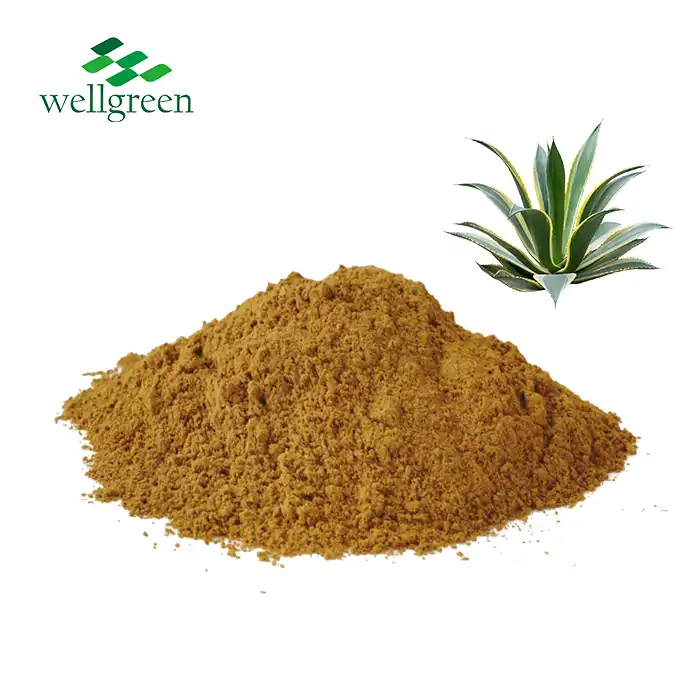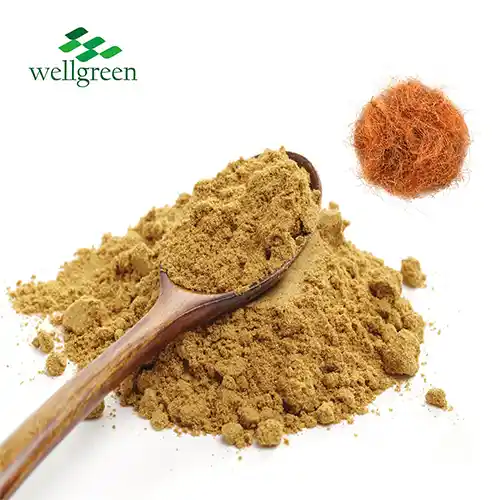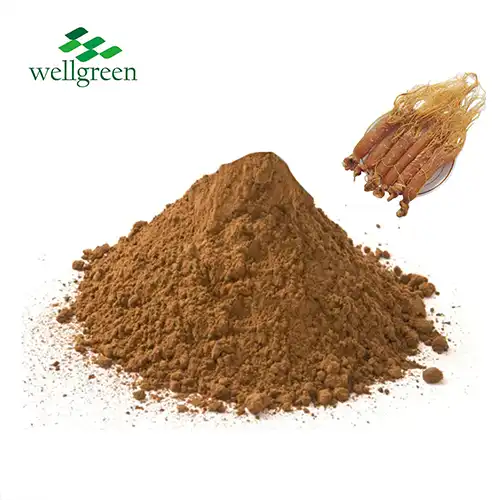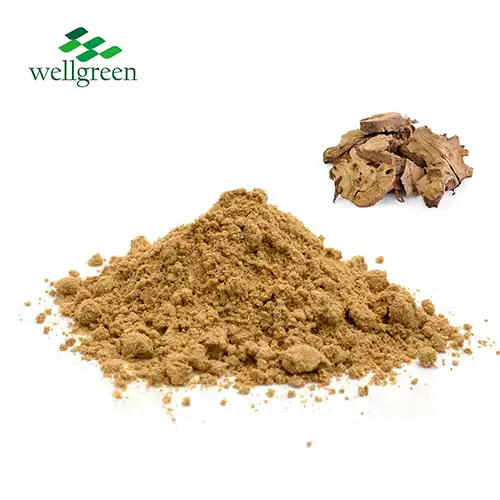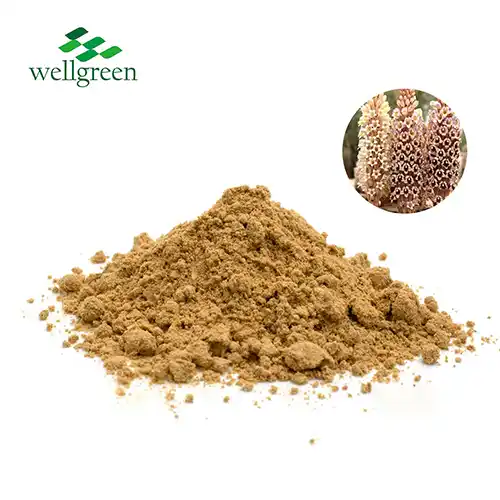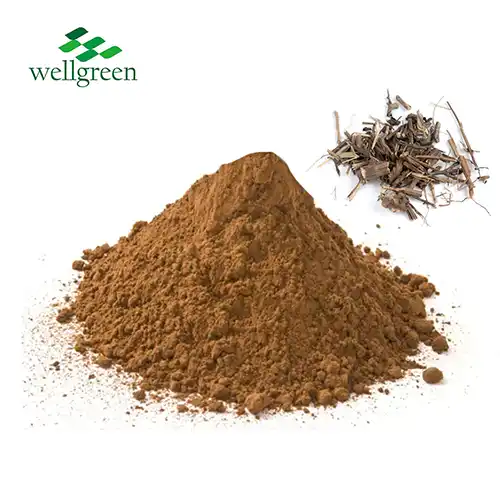Can Soy Peptide Powder Support Your Weight Loss Goals?
2024-10-25 18:36:37
If you're on a journey to shed those extra pounds, you've likely explored various dietary supplements and protein sources. One option that's been gaining attention in the weight loss community is soy peptide powder. But what exactly is this supplement, and can it really help you achieve your weight loss goals? Let's dive into the science behind soy peptide powder and its potential benefits for those looking to slim down.
Soy peptide powder is derived from soybeans through a process called enzymatic hydrolysis. This process breaks down soy proteins into smaller, more easily absorbed peptides. These peptides are packed with essential amino acids, making them a high-quality protein source that's both cholesterol-free and low in saturated fat.

Is Soy Peptide Powder Effective for Fat Loss Compared to Other Protein Sources?
When it comes to fat loss, not all protein sources are created equal. Soy peptide powder has some unique characteristics that may give it an edge in the weight loss department.
One of the key advantages of soy peptide powder is its low-calorie content. Compared to whey or casein protein, soy peptides typically contain fewer calories per serving, making it easier to maintain a calorie deficit - a crucial factor in weight loss.
Moreover, soy peptides have been shown to have a higher thermic effect than other protein sources. This means your body burns more calories digesting soy peptides, potentially boosting your overall calorie expenditure.
A study published in the Journal of Nutritional Science and Vitaminology found that subjects who consumed soy peptides experienced greater reductions in body fat percentage compared to those who consumed casein protein. The researchers attributed this effect to soy peptides' ability to enhance fat oxidation and suppress lipogenesis.
Another intriguing aspect of soy peptides is their potential to reduce fat absorption. Research has indicated that certain peptides found in soy can inhibit lipase, an enzyme responsible for fat breakdown and absorption in the intestines. By limiting fat absorption, soy peptides may help reduce overall calorie intake and support weight loss efforts.
Can Soy Peptide Powder Boost Metabolism for Weight Loss?
Metabolism plays a crucial role in weight management, and soy peptide powder may have some metabolism-boosting properties that could aid in your weight loss journey.
One-way soy peptides might enhance metabolism is through their effect on thyroid function. The thyroid gland is responsible for regulating metabolism, and some studies suggest that soy peptides can support healthy thyroid function. A well-functioning thyroid can help maintain a higher basal metabolic rate, potentially leading to increased calorie burn throughout the day.
Additionally, soy peptides have been found to increase the expression of genes involved in fatty acid oxidation. This means your body may become more efficient at burning fat for energy, which could translate to improved weight loss outcomes.
Research published in the Journal of Medicinal Food demonstrated that soy peptides could activate AMPK (AMP-activated protein kinase), an enzyme that plays a key role in cellular energy homeostasis. Activation of AMPK has been associated with increased fat burning and improved glucose uptake, both of which can contribute to weight loss.
Furthermore, soy peptides may help regulate appetite hormones. Studies have shown that soy protein can increase levels of cholecystokinin (CCK), a hormone that promotes feelings of fullness and satiety. By helping you feel fuller for longer, soy peptide powder could naturally reduce your calorie intake, supporting your weight loss efforts.

What Role Does Soy Peptide Powder Play in Preserving Lean Muscle Mass During Weight Loss?
One of the challenges of weight loss is maintaining lean muscle mass while shedding fat. Soy peptide powder may offer some unique benefits in this area.
Soy peptides are rich in branched-chain amino acids (BCAAs), particularly leucine. Leucine is known for its ability to stimulate muscle protein synthesis, which is crucial for preserving and building lean muscle mass. By providing your body with a readily available source of BCAAs, soy peptide powder can help support muscle maintenance during calorie-restricted diets.
A study published in the Journal of the International Society of Sports Nutrition found that individuals who supplemented with soy protein during a weight loss program retained more lean body mass compared to those who didn't use protein supplementation. This suggests that soy peptides could help mitigate muscle loss often associated with calorie restriction.
Moreover, soy peptides have been shown to have anti-inflammatory properties. Chronic inflammation can interfere with muscle protein synthesis and contribute to muscle wasting. By reducing inflammation, soy peptides may create a more favorable environment for muscle preservation and growth.
Another interesting aspect of soy peptides is their potential to improve insulin sensitivity. Better insulin sensitivity can enhance nutrient partitioning, directing more calories towards muscle tissue rather than fat storage. This could be particularly beneficial for those looking to improve body composition while losing weight.
Lastly, soy peptides contain arginine, an amino acid that plays a role in nitric oxide production. Increased nitric oxide can improve blood flow to muscles, potentially enhancing nutrient delivery and supporting muscle recovery and growth.
Conclusion
In conclusion, soy peptide powder shows promise as a valuable tool in supporting weight loss goals. Its unique composition and biological effects may offer advantages in fat loss, metabolism boosting, and muscle preservation. However, it's important to remember that no single supplement can replace a balanced diet and regular exercise. Soy peptide powder should be viewed as part of a comprehensive weight loss strategy, not a magic solution. As with any dietary change or supplement regimen, it's always wise to consult with a healthcare professional before incorporating soy peptide powder into your weight loss plan.
Contact Us
Ready to explore the potential benefits of soy peptide powder for your weight loss journey? Contact Xi'an Wellgreen at wgt@allwellcn.com for high-quality soy peptide powder and expert guidance on incorporating it into your wellness routine.
References
1. Aoyama, T., Fukui, K., Takamatsu, K., Hashimoto, Y., & Yamamoto, T. (2000). Soy protein isolate and its hydrolysate reduce body fat of dietary obese rats and genetically obese mice (yellow KK). Nutrition, 16(5), 349-354.
2. Velasquez, M. T., & Bhathena, S. J. (2007). Role of dietary soy protein in obesity. International Journal of Medical Sciences, 4(2), 72-82.
3. Koba, K., Akahoshi, A., Yamasaki, M., Tanaka, K., Yamada, K., Iwata, T., ... & Sugano, M. (2002). Dietary soy protein downregulates fatty acid synthesis and induces β-oxidation in the liver of rats. Journal of Nutritional Science and Vitaminology, 48(5), 384-393.
4. Morita, T., Oh-hashi, A., Takei, K., Ikai, M., Kasaoka, S., & Kiriyama, S. (1997). Cholesterol-lowering effects of soybean, potato and rice proteins depend on their low methionine contents in rats fed a cholesterol-free purified diet. The Journal of Nutrition, 127(3), 470-477.
5. Weigle, D. S., Breen, P. A., Matthys, C. C., Callahan, H. S., Meeuws, K. E., Burden, V. R., & Purnell, J. Q. (2005). A high-protein diet induces sustained reductions in appetite, ad libitum caloric intake, and body weight despite compensatory changes in diurnal plasma leptin and ghrelin concentrations. The American Journal of Clinical Nutrition, 82(1), 41-48.
6. Paddon-Jones, D., Westman, E., Mattes, R. D., Wolfe, R. R., Astrup, A., & Westerterp-Plantenga, M. (2008). Protein, weight management, and satiety. The American Journal of Clinical Nutrition, 87(5), 1558S-1561S.

